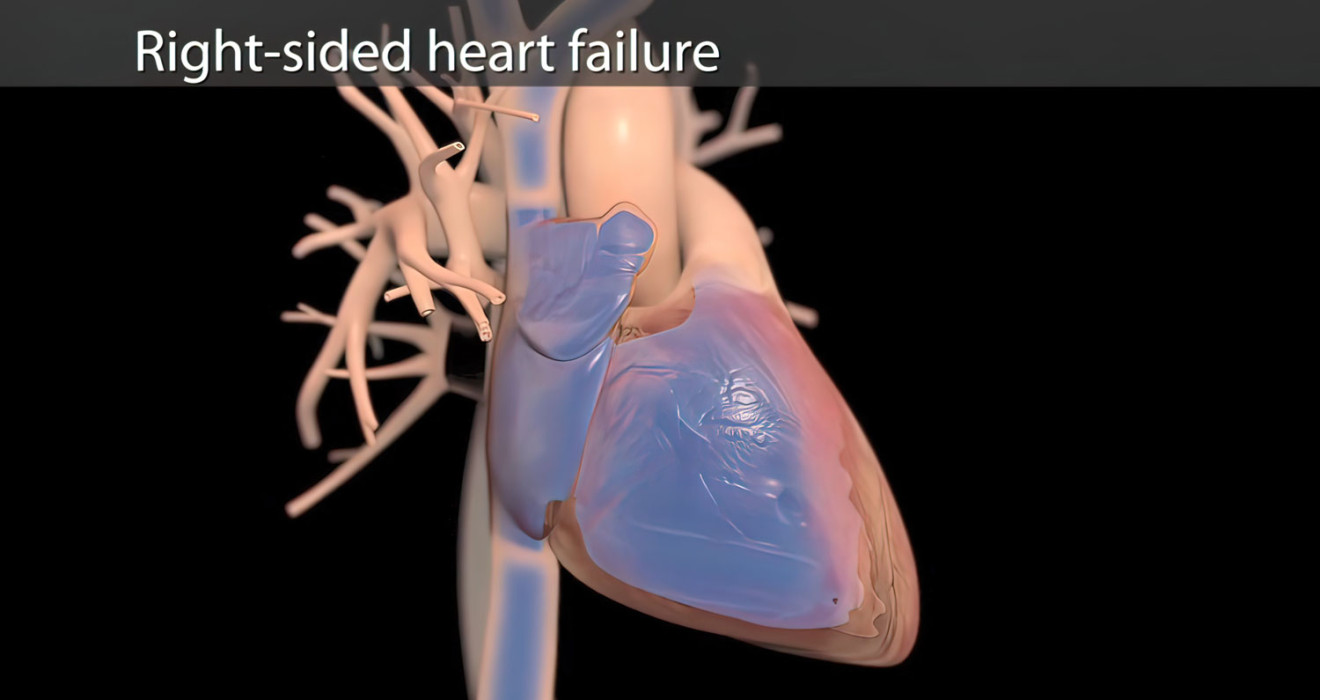
Right Heart Failure
The right side of the heart receives oxygen-poor blood from the lungs and pumps it to the lungs, where the blood gets oxygenated and distributed to the body. Therefore, right heart failure occurs when the right heart is unable to perform this function properly.
What is Right Heart Failure?
It is the insufficient pumping function of the right ventricle of the heart. This condition can result in inadequate blood flow to the lungs and accumulation of blood in the pulmonary vessels. It often occurs as a result of other health problems such as heart and lung diseases.
What are the Right Heart Failure Symptoms?
The symptoms include:
- Shortness of breath
- Chest pain
- Fatigue or weakness
- Swelling in the ankles or feet
- Leg pain
- Abdominal bloating or fluid accumulation
- Rapid or irregular heartbeat
- Difficulty while breathing
How is Right Heart Failure Detected?
Diagnosis can be made through medical history, physical examination, blood tests, electrocardiogram (ECG), chest X-ray, echocardiography, and, if necessary, other advanced imaging tests.
What Causes Right Heart Failure?
It occurs due to the inadequate pumping function of the right ventricle. It is often caused by other health problems such as heart and lung diseases, including:
- Pulmonary hypertension (high blood pressure in the lung arteries)
- Cor pulmonale (heart disease caused by lung conditions)
- Right ventricular infarction (damage to the right ventricle of the heart)
- Heart valve disease
- Cardiomyopathy (heart muscle disease)
- Arrhythmias (irregular heart rhythms)
- Congenital heart abnormalities
How is It Diagnosed?
Diagnostic methods used include:
- Patient history
- Physical examination
- Blood tests
- Echocardiography
- Chest X-ray
- Electrocardiography (ECG)
- Advanced imaging techniques (such as computed tomography (CT) or magnetic resonance imaging (MRI), etc.)
What are the Right Heart Failure Treatment Options?
The treatment of right heart failure includes managing the underlying disease, making lifestyle changes, and medication therapy. In some cases, surgical treatments such as heart transplantation or ventricular assist device (VAD) may be necessary. Lifestyle changes may involve regular exercise, a healthy diet, avoiding smoking, limiting alcohol consumption, and using stress management techniques.
Medication therapy is used to control symptoms and improve the strength of the heart muscle. Various medications such as ACE inhibitors, beta-blockers, diuretics, digoxin, and aldosterone antagonists are used.
If the problem is related to heart valve issues, repair or replacement of the valve may be performed.
In some cases, surgical treatments such as heart transplantation or ventricular assist device (VAD) may be necessary. Heart transplantation is one of the most effective methods of treatment when successfully performed. However, finding a suitable donor heart can be challenging, and the transplantation process carries significant risks.
VAD is another surgical option used in the treatment of it. This device assists or completely takes over the function of the heart, reducing the symptoms of heart failure. VAD can be an alternative for patients who are not suitable candidates for heart transplantation.
Frequently Asked Questions
-
An electrocardiogram (ECG) is a test that measures the electrical activity of the heart. In the case of right heart failure, ECG results can show certain signs.
-
It can be dangerous in the following situations:
- Severe difficulty breathing and shortness of breath
- Extreme fatigue and weakness
- Excessive leg swelling or edema (especially in the ankles)
- Accumulation of fluid in the lungs (pulmonary edema)
- Decreased urine output or signs of kidney failure
- Altered consciousness or confusion
- Chest pain or symptoms of a heart attack
-
It can occur in individuals with the following conditions:
- Pulmonary hypertension
- Coronary artery disease
- Chronic obstructive pulmonary disease (COPD)
- Pulmonary embolism
- Congenital heart disease
-
Yes, it can cause leg edema (swelling in the ankles, legs, or knees). It affects the return of blood from the lower part of the body to the heart, increasing venous pressure. This can lead to fluid accumulation and edema in the legs and ankles.
-
If a person has symptoms of it, they should consult a doctor. The doctor will evaluate the symptoms and determine an appropriate treatment plan.


